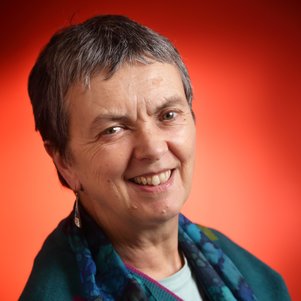webinar
Russian oil conspiracies, The blackout myth and Governance through fear
31 July 2020 14:00 - By: Social Innovation in the Energy Transition | Add to my calendar
Topic
The webinar will give a brief introduction to the gender-energy nexus and how this plays out at the local level in the context of the European context. Joy Clancy and Mariëlle Feenstra will explain how using a gender approach can help create more inclusive energy communities, not only in terms of gender but also in terms of other social characteristics such as age and ethnicity.

Key-note speaker:
Joy Clancy
Joy Clancy is Professor Emeritus of Energy and Gender, University of Twente, The Netherlands. She has a PhD in Engineering (alternative fuels). Joy’s research has focused, for more than 30 years, on the social dimensions, including gender, of energy systems. She initially focused on the South, but has broadened her interest to the North particularly energy poverty. Joy is a founder member of ENERGIA, the international Gender and Sustainable Energy network. She currently leads, together with Mariëlle Feenstra, a sub-task within an IEA UsersTCP (User-Centred Energy Systems) research programme on gender and energy policy.

Speaker:
Mariëlle Feenstra
Mariëlle Feenstra is a senior researcher on gender just energy policy. She uses a gender lens to analyse energy transition policy, taking a North-South perspective. She worked 15 years as a policy advisor for municipalities in the Netherlands specialised in European Affairs. Her contribution has been acknowledged both in academia and in practice by invitations to participate in policy formulation activities.
She wrote the first-ever thesis on gender-aware energy policy with case studies from Uganda and South Africa as a University Twente master student in 2002. She worked 15 years as a policy advisor for municipalities in the Netherlands specialised in European Affairs. Together with her supervisor Prof. Dr. Joy Clancy, she has written two studies for the FEMM Committee of the European Parliament. Both studies are the first publications in the EU on gender and energy policy.